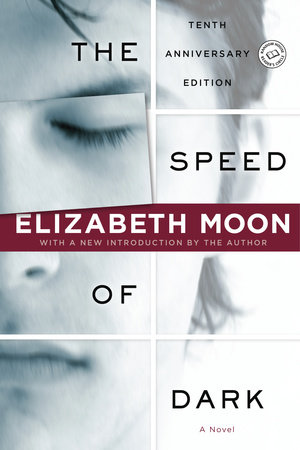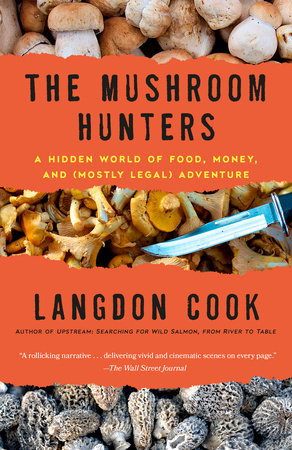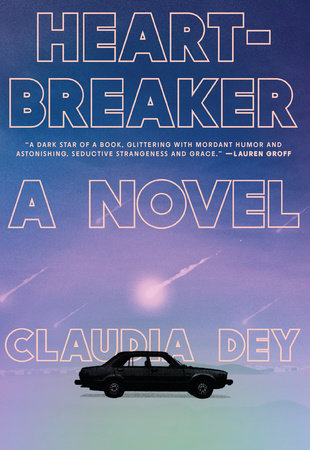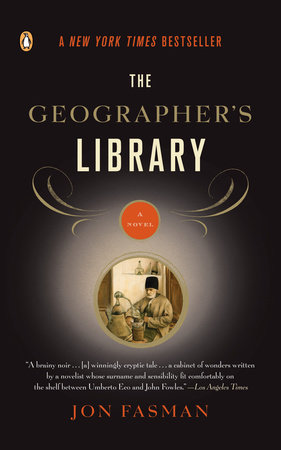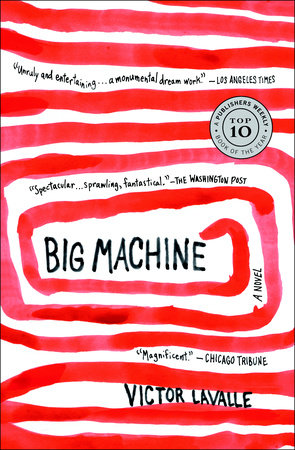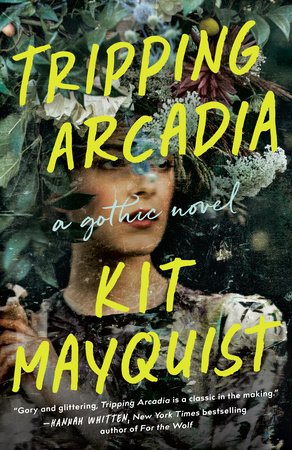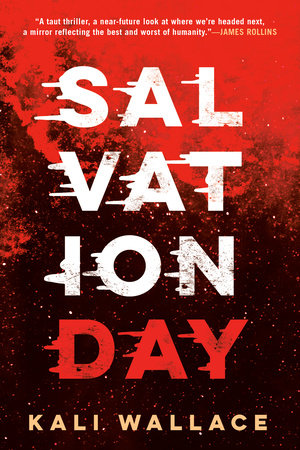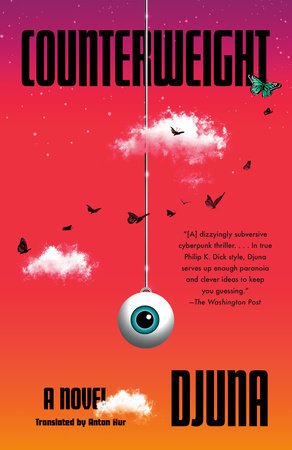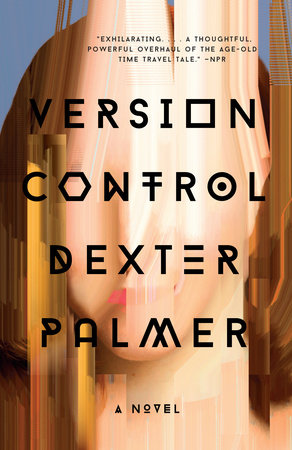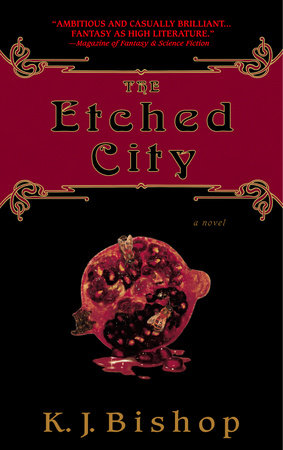A CONVERSATION WITH ELIZABETH MOON
Paul Witcover: You’re known as a science fiction writer, but even though
The Speed of Dark is set in the near future, the world you depict is not
too different from the world of today. Certain technology, such as
genetic engineering and nanotechnology, is more advanced than at
present, but the society in which Lou Arrendale and the other characters
live and work seems contemporaneous. How much of a change of pace
was this novel for you? Is it science fiction? And if so, what makes it
science fiction?
Elizabeth Moon: This was definitely a change of pace. Occasionally
an idea or a character blindsides me and knocks me right out of what I
intended to do next. Whether it’s science fiction or not depends on the
reader’s definition of science fiction. Although it’s set in the future (or
near future), the issues facing the characters are indeed those of today.
PW: What is autism? Is it a genetic condition? A mental illness? The
result of an infection? Physical trauma? I’ve even heard infant
immunizations blamed.
EM: Autism is a pervasive developmental disorder. The diagnostic
criteria are found in DSM-IV (the Diagnostic & Statistical Manual of
Mental Disorders published by the American Psychiatric Association),
but this source is very much out of date for treatment and prognosis.
Most children with autism are clearly born with it, and the best current
evidence suggests that something begins to be different in autistic fetuses
well before birth. It is not known whether maternal infections or trauma
can cause this “difference.” It used to be considered a mental illness
(which is why you find it described in the psychiatric literature), but
it’s not currently given that classification. Since it occurs at higher
frequencies in families with other cases of autism and related
neurological conditions, genetics certainly plays some role in many, if not
most, cases of autism. Some people will blame anything, however
unlikely, and in the face of contrary data; there is no evidence that infant
immunizations cause autism.
PW: What are some of the warning signs that parents should be aware
of? Where can people go for more information or help?
EM: The autistic spectrum includes a range of developmental disabilities
that are similar but not identical. Classical autism presents as
developmental delay, often global, but particularly affecting sensory
integration; fine-motor coordination; language, both receptive and
expressive; and social interaction. The amount of delay varies widely.
What a parent will notice first, most likely, is marked delay in language
acquisition, marked delay in normal social interaction, and very
restricted activities/interests compared to other children the same age.
The autistic child may not talk at all, or speak only to echo what he just
heard, or repeat that jingle. He may ignore TV to sit by the bureau
flicking the handles of drawers over and over. He is likely to do the same
thing hour after hour, day after day: stacking blocks, winding and
unwinding string, some other repetitive activity. Autistic individuals have
great difficulty learning to “read” the social cues the rest of us use—tone
of voice, facial expression, etc. A child whose autism is milder, and
undiagnosed until school age, will usually demonstrate very uneven
abilities—excelling in one subject, and flunking in another—and will
also have the associated difficulty in reciprocal social interactions.
PW: Milder . . . Is this where Asperger’s Syndrome comes in?
EM: Asperger’s Syndrome, which is related to autism in many ways,
does not involve language delay—Asperger’s kids may talk early and
fluently—but does involve delays and difficulties with social interaction
similar to those in autism. As with classical autism, there is a wide range
of severity. If a child talks “on time” but does not develop reciprocal
social skills—can’t hold a conversation with turn-taking, doesn’t play
with others—that’s also cause for concern.
All small children do things that autistic children do, all the lists of
behaviors you may have seen in magazine articles, but normal children
also do much more. If they repeat advertising jingles ad nauseam, they
can also demand more cookies, ask questions, play pretend games with
friends, argue about bedtime. Normal children may also have strong
idiosyncratic interests. I was horse-crazy, and made endless parades of my
toy horses. They may flap their hands, spin the wheels of toy cars, act shy
and refuse eye contact, or be unusually sensitive to texture or taste, all
without being autistic . . . if the rest of their development is coming
along at the usual rate, if these “autistic” behaviors aren’t the only ones
they have. Children do vary in their acquisition of social skills; they all
have to be “civilized” into the normal give-and-take of social interaction.
What matters is not any particular behavior, but the overall pattern of
development.
Since language delay has several causes, all of them important to a
child’s future, any delay in talking should be checked out. The child may
have a hearing loss or any of several other problems—autism is only one
of the possibilities—but the sooner the cause is identified and therapy
begun, the better.
Parents today have many resources. If they have a concern about
a child’s development, any of the basic books on infant and child
development will give them some guidelines. Day-care and nurseryschool
teachers, who have seen hundreds of children, are also helpful
resources—they know when a given child is or isn’t making
developmental milestones. Doctors vary in their understanding of
autism; some may be reluctant to make the diagnosis early because when
they went to school it was a very bad one. But most family practitioners
and pediatricians are at least familiar with the diagnostic criteria, and can
help families determine if autism is a possibility.
PW: Lou Arrendale is an extraordinarily vivid creation. There have been
books and movies that feature autistic people before, such as Rain Man,
but I can’t recall another treatment that gets inside an autist’s head as
deeply as you do here. I know you have an autistic son; how much of
Lou is based on your son and your experiences in raising him?
EM: Our son was certainly the starting point and the inspiration—
eighteen years of 24/7 experience provides a lot of information (he was
seventeen or eighteen when I started the book). In addition, I had read
books by Oliver Sacks; Temple Grandin, who is herself autistic and a fine
advocate for the autistic community; Clara Park, whose autistic daughter,
a talented artist, is now in her forties; and others, and had found online
groups of autistic individuals who demonstrated the wide variety of
personalities and abilities that autistic people have.
Lou’s character is, however, quite different from that of our son; Lou
is the product of early intervention and educational advances that were
not available when our son was born. He’s also innately more intelligent,
with a high IQ; our son’s is low normal. Lou is by nature a quieter and
more thoughtful person; our son is more exuberant.
PW: Despite being autistic, Lou functions better than many so-called
normal people. He has a job, friends, interests. He is highly intelligent
and extremely sensitive to certain sensations and perceptions, such as, for
example, smells and textures. And his pattern recognition abilities, which
he relies on in every aspect of his life, from his job at the pharmaceutical
company to his hobby of fencing to his interactions with others, are
phenomenal. How typical is Lou of people with autism today in terms of
his social skills and mental abilities?
EM: Here it makes a huge difference which generation of autistic
persons you’re talking about. Most autistic children born in the 1940s
and before were characterized as having “infantile schizophrenia” and
were institutionalized early as hopeless (as in Rain Man). Only a few
exceptionally intelligent autistic children had the kind of support they
needed to achieve independent living as adults. As late as DSM-IV, the
prognosis was that only 30 percent of the most intelligent and capable
autistic persons would ever live independently. However, with the advent
of mandated public education for all students and early childhood
intervention, the situation has improved markedly. Social problems
are still the main reason for autistic persons not achieving full
independence, but more and more of them are holding jobs and living in
less sheltered environments. They are still earning less than non-autistic
persons of equivalent intelligence, and autistic persons who are also
retarded or have another disability (physical or other) are still likely to
need lifelong assistance of some kind—but few now are consigned to
residential institutions. I expect that in the next five to ten years, as
children who received good therapy in the birth-to-five-years range
reach adulthood, we will see a reversal of the DSM-IV prognosis, with
60 percent or more holding jobs. Assuming, of course, that the economy
improves . . .
Lou’s sensitivity to sensory input and his pattern-recognition skills,
however, are common to most autistic individuals. Sensory perception
and sensory processing differences are universal. If there is an autistic
child anywhere who tolerates tags in T-shirts or bulky seams in socks, I
never heard of one . . .
PW: How is autism treated today? Have you seen much progress since
the birth of your son? Do you think that we are on track toward the sorts
of advanced therapies available in your book?
EM: Autism is treated today in a variety of ways—the most useful being
intensive supportive therapy for young children. The earlier autism is
diagnosed, and the earlier families begin helping these children develop,
the better the prognosis. Communication therapy (not just speech
therapy), sensory integration therapy, skills training (including social
skills training)—all these and other therapies, not necessarily the same
for each child, make an enormous difference. Autistic children do
continue to develop; what you have with an autistic toddler, an
enormous and terrifying challenge, is not the limit of what’s possible.
Certainly there’s been a lot of progress since our son was born. I had
to figure out a lot of things for myself—not much was available, at least
not here. But after the legislation that mandated early childhood
intervention for disabled children, more and more people were working
in the field and soon began to discover what worked best. Positivereinforcement
behavioral shaping—more on the model of Karen Pryor
than the rigidity of the academics, in my opinion—works best.
I definitely think that the sort of advanced therapy I wrote about is
within reach; whether the research heads in that direction or not will
depend on funding. But in the process of writing this book, I was
reading an international neuroscience journal (Nature Neuroscience), and
kept worrying that the science was catching up with the story all too fast.
PW: Lou is constantly questioning what it means to be autistic and what
it means to be normal. He comes to believe that the two are points along
a spectrum rather than wholly unrelated ways of being. I think this must
be true because of my own experience in reading the novel. At first, I
found Lou fascinating but alien; I could sympathize with him, but from
the outside looking in. Then, as I read on, a curious and amazing thing
happened. I began to empathize with Lou. His way of thinking stopped
seeming alien to me and began to seem human. In fact, I began to
recognize more and more of myself in him. When the demands of daily
life took me away from the book, his voice stayed with me, coloring my
perceptions of the world, until I felt almost as if a part of me were
autistic. It was no longer possible for me to think of Lou as alien, and it
even became difficult to think of him as damaged, exactly. Just different.
Which raises a lot of interesting practical and philosophical questions
about autism . . . and not just autism.
EM: Doesn’t it, though! To a large degree, we (meaning society in its
judgmental role) create aliens from humans by excluding them, by
defining them as too strange, too difficult. Human cultures have always
done this. It helps a group to bond, if they define nonmembers as
completely different. Cultures have defined other races, religions,
nationalities, and even economic groups as “not really human” and thus
outside the rules that govern behavior in the group. And we’ve done it
with disabilities. Sometimes the disabled are treated as children (We
know what’s best for you . . . ) and sometimes as monsters who must be
confined or even killed.
PW: The other side of this coin would be the criticism that you’ve
described autism too well; or, rather, have romanticized it, made it seem
appealing in its strangeness, as if to be autistic were to be like Star Trek’s
Data or Mr. Spock. How would you respond to this criticism?
EM:With a loud snort . . . No parent of an autistic child would ever
romanticize autism, or minimize the strain it places on both the child and
the society in which that child lives. Hours of screaming when nothing
would comfort him . . . cleaning up smeared feces . . . endless days and
nights of struggling to understand the child’s communications, and
communicate to him . . . nothing romantic about that at all. It was hard
work, and tough emotionally (on him as well as on us). For most of his
life, we had him 24/7, 365 days a year (ordinary baby-sitters can’t
cope)—there were no nights out, no weekends off. Respite care, in
those days, was not available.
But I definitely chose not to demonize autism, which is what many
magazine articles do: They treat autism as the worst, most horrible, most
alienating of the developmental disabilities, a complete and utter tragedy
for families, a wasted life with no possibility of joy or fulfillment. That’s
simply not the truth. The autistic child is a fully human child, capable of
receiving and giving love, capable of enjoying and giving pleasure. The
autistic persons I met online, even when they described themselves as
alien, demonstrated all the common human emotions and desires: They
want to be around people who understand them, who like them as they
are. They want to have a comfortable living and working environment,
to be treated with respect and dignity. They want to eat what tastes good
to them, and avoid what tastes bad. They want friends who share their
interests; they want to enjoy life in their own way. If they believe
themselves to be alien, it is because we, the “normals,” have told them
over and over how impossible they are. We try to insist that they must
become like us to be acceptable—which makes about as much sense as
insisting that someone change his skin color or eye color or height.
PW: What feedback have you received from autists and members of the
autistic community, parents, and researchers?
EM: Very positive so far. Several autists have contacted me and told me
they like the characterization of Lou. I hear from parents and special ed
teachers that the book is beginning to spread through their communities
(parents and teachers of autistic children are busy people and rarely find
the time to read books when they first come out). Researchers I would
imagine are focused on their research and pay little attention to fiction
written on their topic.
PW: Your novel has been compared, perhaps inevitably, to Daniel Keyes’s
classic, Flowers for Algernon. Do you think the comparison is valid?
EM: I think it’s flattering—that is a great story. On the other hand, most
people who’ve read both have ended up concentrating on the contrasts
rather than the similarities.
PW: The title of the novel, The Speed of Dark, often contrasted by
Lou with the speed of light, becomes a metaphor for a lot of things:
prejudice, ignorance, death. It is also, more generally, the unknown.
How did your understanding of this phrase evolve in the course of
writing the novel?
EM: When a title really works, it begins to resonate with more and more
elements of the story and its underpinnings . . . and this happened to
me. At first it was more a clever than a wise choice. (It’s one of the few
places where our son “appears,” since he gave me the title one day early
on. He came in, leaned on the doorframe, and said, “If the speed of light
is 186,000 miles a second, what is the speed of dark?” I gave the usual
“Dark has no speed” answer, and he said, “It could be faster. It’s there
first.”) But in the writing, the other metaphorical connections formed.
The book grew after Lou, in a way, following him in a somewhat
different direction than I had expected.
PW: I had the same reaction to the “speed of dark” question when Lou
raises it in the novel. But then I realized that it was exactly the sort of
question Einstein was famous for asking himself; in fact, I recently read
an article that speculated that Einstein might have had Asperger’s
Syndrome.
EM: Many scientists and engineers have behavioral traits found in the
autistic spectrum; there’s been speculation about Einstein for years. But we
simply don’t know enough about his childhood to make a firm diagnosis.
There are other causes for language delay, and someone can be obsessive,
absentminded, socially inept, and brilliant without being autistic. Still, it
could be true. The more we’ve learned about the autistic spectrum, the
more it’s clear that many people are “a little autistic”—share some of the
same behaviors, to a lesser degree—and yet function well in the world.
PW: How did writing The Speed of Dark change your views on autism . . .
and normality?
EM: Having a child with autism changed my views on autism and
normality . . . writing the book gave me the chance to share those views.
PW: Did it change your relationship with your son?
EM: No. Our son is himself, not a fictional character, and our
relationship is the product of almost twenty years of interaction. He has
no interest in the book. I tried to read him bits of it while I was working
on it, to get his reaction—and his reaction was to zone out.
PW: If the cure that is offered to Lou and his fellow autists were available
today, would you want your son to try it, despite the dangers?
EM: I don’t know. One of the great challenges for any parent of a child
with disabilities is how to love the child as he/she is, and yet remain open
to change that may be beneficial. Some people come down hard on one
side or the other of this: the parents who insist that they would never
want their disabled child to be cured because that would invalidate their
love for the child as he/she is, versus the ones who insist that everyone
should leap at every chance at a cure. I can’t. Part of it is his age now. At
two, three, four, five, I would have taken a “magic bullet” cure in a
heartbeat, assuming that it had to be better than where he was. Now?
Our son at this point is an enthusiastic, happy, loving young man,
eagerly learning what he can in special ed classes in his high school.
Losing any of those characteristics would be a terrible loss. But if he
could talk easily with the girls he so admires, if he could use his body
and mind more easily, that would be a great gain. If/when such therapy
becomes available, it will have to be his decision.
PW: It turns out that Lou’s company is not acting altruistically in
offering Lou and his fellow autists the chance for a cure. Just as the
procedure can give them more normal neurological responses, so, too,
can it impart autistic responses, such as enhanced pattern-recognition
abilities, to non-autistic people, perhaps making them more productive
workers. Are you concerned about the potential misuse of advanced
therapies, genetic and otherwise, that are being developed today? What
safeguards, if any, are in effect to prevent such misuse, by both the
government and the private sector?
EM: Any therapies that change brain function can be misused—though
what constitutes misuse is presently the hot topic in this part of
bioethics. Recent articles in various journals have discussed the ethics
of memory enhancement (fine for Alzheimer’s patients, but what about
college students?), attention enhancement (okay for fighter pilots, but
what about college students?), and others. Fixing a neurological problem
is one thing; enhancing one’s own performance is another; imposing the
requirement to enhance someone else’s performance . . . slides over into
mind control of a very literal kind.In my opinion, this is an area where research and clinical utility are out ahead of safeguards. Nobody wants to safeguard the Alzheimer’s
patient from enhanced memory—that clearly improves the patient’s
quality of life. But should the college student take the same drug to
improve his ability to cram for a test at the last minute? Is it “fair” to give
yourself a better memory, or twenty points more IQ? Is it fair if your
parents, who paid for that expensive college, do it to you by sending you
drugged brownies? If your employer puts it in the punch at the company
Christmas party? Or, conversely, is it fair if your parents refuse to let you
improve your intelligence, when you are struggling, because they think
you’re just lazy? Experience shows that once a therapy exists, someone will find a
new (and to many, a less ethical) use for it. “Safeguards” are put up
afterward, trying to shut the barn door before all the horses get out.
PW: Has there been any interest from Hollywood? The part of Lou
Arrendale would be an actor’s dream!
EM: You’d think so, wouldn’t you? There’ve been nibbles, but no
deals yet.
